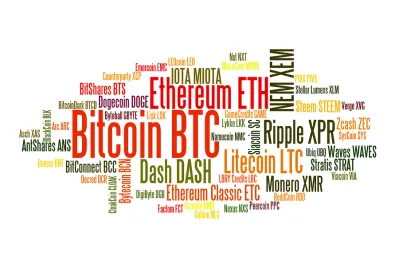Disrupting the Disruptors: 2018 – The Year in Review
2018 was a year of transformation for the blockchain industry. While the market continued to see technological advancements in smart contracts, platform functionality, scalability and security, regulators took a firmer rein in pursuing those seeking to exploit the uninitiated or those engaged in outright fraud. We discuss below some of the key enforcement actions and proceedings during 2018 that have shaped the regulatory environment in the United States and the continuing uncertainty over the classification of digital assets as securities.
Notably, in June 2018, William Hinman, director of the Division of Corporation Finance at the Securities and Exchange Commission (SEC), reiterated (now somewhat famously) to participants at the Yahoo! Finance All Markets Summit in San Francisco that “the economic substance of the [token] transaction always determines the legal analysis, not the labels.” Hence, identifying a token as a “utility” is not sufficient to assess the status of the underlying transaction under U.S. federal and state securities laws. Most significantly, Hinman went on to suggest that an examination of the role of a third party in driving the expectation of a return is primary to the securities analysis and, to facilitate the analysis further, he listed key contractual and technical considerations as to the way a token may be structured. The primary takeaway from Hinman’s remarks, as well as those of others at the SEC over the course of the year, is the SEC’s strong desire to encourage – not thwart – technological innovation while concurrently maintaining market integrity.
Not surprisingly, Hinman’s remarks set the industry afire with the first tangible guidance from a U.S. regulator on the important regulatory issues surrounding token offers and sales. His remarks subsequently sparked members of Congress to push the SEC for clarification of the criteria to be used in determining if a digital asset is an investment contract or, if so, when it might transform into a utility asset.
Meanwhile, regulators globally have continued to struggle with the same issues as in the United States and share a similar reluctance to thwarting innovation. Malta joined the list of blockchain-friendly jurisdictions, seeking to establish itself as a go-to market for global blockchain enterprises. Singapore and the EU pulled back from their initial open attitude to the industry, focusing on market risks as new regulatory regimes are considered for digital assets.
The market witnessed an increased interest in the development of the “stable coin” in an effort to minimize price volatility of digital assets, tying them to a fiat currency or commodity, such as gold or silver. States and local authorities have begun to explore opportunities for streamlining land records and corporate and other databases through the adoption of blockchain technology. We discuss below various legislative efforts in a number of states to utilize blockchain, smart contracts, and digital assets.
A few secondary trading platforms for digital securities received regulatory approval in 2018 to facilitate the continuing interest in raising capital through token offerings, often in reliance on Regulation D, with Sharespost and tZERO now engaged in limited transactions for accredited investors. More platforms are expected to receive approval in 2019. However, offerings of digital securities under Regulation A+ have yet to receive a green light from the SEC, bogged down in a myriad of custody and related issues. Relief appears to be on the horizon in 2019 as more back-office services addressing escrow, custody, and settlement concerns become available.
Significant challenges remain to be addressed by the blockchain community. Liquidity, regulatory compliance, custody, insurance, and digital identity, among others, present obstacles to broader adoption. Nonetheless, key players in public and private infrastructure, supply chain management, and financial services, just to name a few, are actively engaged in pursuing strategic options for implementing blockchain technology across their business activities. As this disruptive technology continues to evolve, we can similarly expect our business activities and our personal lives to be transformed in ways that are currently hard to fathom.
Noteworthy Federal Securities Cases During 2018
2018 saw a flurry of enforcement activity by the SEC both through the courts and the SEC’s own administrative proceedings. Key claims focused on whether the offer and sale of a particular token were subject to federal securities laws and whether defendants/respondents had engaged in fraud. The cases highlight the SEC’s efforts to stem activity by bad actors following the issuance of its shot over the bow to market participants in 2017, when it issued The DAO Report, officially known as “The SEC Report of Investigation Pursuant to Section 21(a) of the Securities Exchange Act of 1934: The DAO.” That report marks a line in the regulatory sandbox, pursuant to which failure by market participants to follow existing securities laws could readily subject them to a barrage of enforcement actions at the state and federal levels. Below is a sampling of the more noteworthy cases from 2018.
Securities and Exchange Commission v. Blockvest, LLC et al.: SEC’s Request for Preliminary Injunction Denied
In November 2018, this case from the U.S. District Court in Southern California attracted significant attention following the District Court’s decision denying a preliminary injunction requested by the SEC, ruling that the SEC did not meet its burden, in part, for failure to demonstrate that tokens sold to investors (who were also Blockvest system “testers”) were securities under the Securities Act of 1933, as amended (Securities Act). Specifically, the District Court found a lack of evidence that the token purchases were investment contracts as articulated in the seminal three-part test found in SEC v. W.J. Howey Co., 328 U.S. 293 (1946) (Howey), defining an investment contract as a security when “a contract, transaction or scheme whereby a person invests his money in a common enterprise and is led to expect profits solely from the efforts of the promoter of a third party.” The court noted the SEC and the defendants presented contravening evidence related to the specific promotional materials and literature inducing 32 parties to invest funds and serve as “testers” for the system’s functionality. The court stated it did not find sufficient support that the 32 investors relied on representations on the company’s website, a company white paper, or statements by Blockvest representatives at a seminar, or that the investors believed they would profit from the purchases of the described test tokens.
Notwithstanding the media hype surrounding the case, it appears that the court’s decision is based primarily on disputed facts presented by each party, including the defendants’ presentation of statements from token testers (who the defendants allege to be close friends and family) inconsistent with statements in the SEC’s complaint, rather than based on the merits underlying the substantive securities allegations. Although it remains to be seen how the decision will be interpreted, the Blockvest opinion likely does little, at this stage, to establish a technical precedent for the unregulated issuance of utility tokens outside the jurisdiction of the SEC.
In the Matter of TokenLot, LLC et al.: SEC Order Against Unregistered Broker-Dealer
In a written settled order released Sept. 11, 2018, the SEC announced enforcement activity targeting the unregistered activity of a broker-dealer operating in the cryptocurrency space (TokenLot Order). The TokenLot Order is but one example of the SEC’s stated “functional approach” that considers the relevant facts and circumstances in assessing unregistered digital activities in whether the definition of broker or dealer is met, regardless of a party’s self-description of its activities or the technology used to provide the services.
Defendants operated an online platform, self-described as an “ICO Superstore,” where U.S. and non-U.S. retail investors could purchase digital tokens during and after an ICO, including in private sales and pre-sales. The SEC order alleged that the TokenLot business involved the selling of digital tokens in connection with ICOs of other entities, secondary-market trading, and marketing digital tokens on behalf of issuers with more than 8,400 digital token purchase orders on the TokenLot platform. While the TokenLot Order did not charge the defendants with running an unregistered exchange, the order described the defendants’ unregistered brokerage activities as marketing and enabling the sale of digital assets, facilitating investor order and funds for payment, and providing for the disbursement of proceeds to the issuers, as well as receipt of compensation based on a percentage of the proceeds raised in the ICOs subject to a guaranteed minimum payment of commissions. The TokenLot Order described the unregistered dealer activities as the purchasing and resale of digital assets for accounts in TokenLot’s name, which accounts were controlled by TokenLot’s operator.
In the Matter of Crypto Asset Management, LP: SEC Order Against Unregistered Hedge Fund
In a same-day release with the TokenLot Order, on Sept. 11, 2018, the SEC announced its order (Crypto Order) against respondents Crypto Asset Management, LP (CAM), as the managing member and manager of Crypto Asset Fund, LLC, and the founder and sole principal of CAM (CAM Founder), finding that the hedge fund whose primary purpose was investing in digital assets had violated Sections 5(a) and 5(c) of the Securities Act for failure to register securities and had improperly failed to register the fund as an investment company under the Investment Company Act of 1940 (ICA), and also finding both respondents had violated the antifraud provisions of the Investment Advisers Act of 1940 for untrue statements or omissions to investors or prospective investors in a pooled investment vehicle. In a short period of four months, the respondents raised over $3.6 million primarily from individual investors with whom the respondents did not have pre-existing relationships and which investors had been sourced by general solicitation through CAM’s website, social media, and traditional media outlets. CAM paid itself incentive and management fees as per the terms of a management agreement, and the CAM Founder received distributions from CAM under a partnership agreement.
Furthermore, the Crypto Order contains findings of misrepresentation. The Crypto Order states that respondents negligently misrepresented to actual and prospective investors in certain marketing materials that the fund was the first regulated crypto asset fund in the United States. The Crypto Order states that the respondents’ remedial efforts, including making a rescission offering and disclosure of their previous misstatements to investors, along with regulatory cooperation, were considered by the SEC in ordering respondents’ cease and desist and pay civil money penalties.
In re Tomahawk Exploration: SEC Deems Token Airdrop as Sale of Securities
On Aug. 14, 2018, the SEC issued a permanent cease-and-desist order against Tomahawk Exploration LLC and David Thompson Laurance (together, “Tomahawk”) for the fraudulent sale of digital assets called “Tomahawkcoins” (TOMs) via an ICO and free token “airdrop” in violation of Sections 5(a) and 5(c) of the Securities Act and Section 10(b) of the Exchange Act and Rule 10b-5 thereunder.
The SEC’s action against Tomahawk expands upon prior SEC actions, including its Dec. 11, 2017, order against Munchee Inc., a California-based corporation whose ICO of its MUN digital tokens represented an illegal sale of securities in violation of Section 5 of the Securities Act (Munchee Order), by extending the Howey definition of an investment contract to a “free” distribution of an issuer’s tokens, i.e., an “airdrop.”
As explored in Greenberg Traurig’s May 2018 GT Advisory, the issuance of tokens for free does not necessarily evade the definition of a “sale” under Sections 2(a)(3) and 5 of the Securities Act if the offering advances the economic objectives of the issuer. Here, the SEC for the first time affirmed such analysis in the context of a token airdrop by determining that a “bounty program” also violated Sections 5(a) and 5(c) of the Securities Act: “The lack of monetary consideration for ‘free’ shares does not mean there was not a sale or offer for sale for purposes of Section 5 of the Securities Act … a ‘gift’ of a security is a ‘sale’ within the meaning of the Securities Act when the donor receives some real benefit.” Despite not earning capital for providing TOMs to promoters, the SEC determined that Tomahawk nevertheless “received value” in the form of online marketing and the creation of a public trading market; Tomahawk “issued tokens … to generate interest in the ICO.”
The SEC’s order against Tomahawk emphasizes the need for entrepreneurs to engage with experienced securities legal counsel when considering issuance of digital assets, whether designed to raise capital or foster the growth of a network via a free token distribution.
2018 State Regulatory Overview
State-level activity was also notable during 2018, as both enforcement actions and new legislation addressing blockchain and cryptocurrency continue to receive increasing interest.
NASAA’s Operation Cryptosweep
In May 2018, U.S. state and Canadian securities regulators launched a coordinated international initiative focused on promoters and issuers of illegal and fraudulent video cryptocurrencies and initial coin offerings (ICOs). This joint effort, known as “Operation Cryptosweep,” was coordinated by the North American Securities Administrators Association (NASAA) with participation of more than 40 agencies. This sweep resulted in nearly 47 enforcement actions involving ICOs or cryptocurrency-related investment products. While the enforcement investigations involved suspected securities fraud, the securities regulators found many other potential violations of state and provincial securities laws, including failure to properly register a product before it was offered to investors. The vast majority of the enforcement activity involves the offer or sale of unregistered securities, according to NASAA. At the 10-year anniversary of Bitcoin, in October 2018, NASAA released a video series on crypto-related offerings to raise awareness among industry participants of their regulatory responsibilities, stress the volatility of these investments, and generally warn of the three “U’s” in cryptocurrency investments:
-
Untraceable (these investments exist on the Internet, and the companies may be anywhere in the world, making them virtually untraceable).
-
Uninsured (deposits into a digital wallet for such transactions are likely uninsured).
-
Unregulated (currently, cryptocurrencies are traded on unregulated digital platforms that lack the protections of the regulated financial markets).
ICO Enforcement Actions by States
2018 saw significant state regulatory enforcement in the digital asset arena, with most cases involving cease-and-desist orders on various ICOs and other transactions involving cryptocurrency products. The various state securities regulators initiated cryptocurrency-related enforcement actions testing when the sale of cryptocurrency products satisfied the definition of an “investment contract” (an investment of money in a common enterprise, with the expectation of profits, from the efforts of other third parties) under Howey.
State securities commissions in the following states had the most cryptocurrency-related regulatory activity in 2018, addressing violations of securities laws and other laws by companies that sold, or proposed to sell, digital tokens in ICOs: Alabama (7), Colorado (18), Massachusetts (5), New Jersey (1), North Carolina (1), North Dakota (7), South Carolina (1), and Texas (9). The following factors accounted for most of these enforcement actions: (i) the ICO offered a bonus or other referral commission with a daily interest-rate bonus; thus potential buyers would have purchased the security token with a reasonable expectation of profit; (ii) the issuance of security tokens was or was proposed to be offered for sale to the general public utilizing an existing blockchain; (iii) social media platforms were used (e.g., YouTube, Twitter, Reddit, PRNewswire, as an advertisement on a television station web page), and promoters and facilitators were often employed to generate interest or participation in the ICO; (iv) the company intended to pool funds raised from sale of the security tokens, thereby constituting investment contracts and/or profit sharing agreements defined as “securities” under the state Securities Act; and (v) the company and its promoters were not registered in the security industry as issuer and/or broker-dealers, respectively, in the state, and no claim of exemption from securities registration was made (in some cases, the offering materials made no representations regarding the location of the corporate office, identity of the principals or management team, or any indication of the experience in the cryptocurrency field).
New York
Virtual Markets Integrity Initiative Report: In April 2018, the New York State Office of the Attorney General (OAG) launched a fact-finding initiative called the “Virtual Markets Integrity Initiative,” sending letters to 13 major virtual currency trading platforms used by consumers to trade virtual or cryptocurrencies and requesting key information on their operations, internal controls, and safeguards to protect customer assets. As a result, a report of findings was released in September 2018, noting three broad areas of concern for the virtual markets industry:
-
Lack of protection from abusive trading platforms and practices, including lack of customer verification and onboarding procedures and transparency (location) of the operators of such platforms.
-
Potential for conflicts of interest due to platforms engaging in various overlapping business lines that are not restricted or monitored in the same way as traditional trading environments, suggesting that the public information (for example, fees and charges) disclosed by digital currency exchanges should be clear and accurate.
-
Limited protection for customer funds, such as the insufficient availability of insurance for virtual asset losses, platforms that do not conduct any type of independent auditing of virtual assets, and lack of appropriate cybersecurity measures.
New York BitLicense: On Nov. 14, 2018, the New York State Department of Financial Services (NYDFS) granted its 14th charter or virtual currency license (BitLicense), authorizing a company to engage in a virtual currency business involving New York or a New York resident. NYDIG Execution, LLC (a subsidiary of NYDIG LLC) received a BitLicense, while NYDIG Trust Company LLC, an affiliated entity and subsidiary of NYDIG LLC, was authorized to operate as a limited purpose trust company. The two companies were authorized to offer custody and execution services involving virtual currencies, with NYDIG Trust Company LLC expressly authorized to operate as a custodian for Bitcoin, Bitcoin Cash, Ether, XRP and Litecoin.
Texas
On Jan. 4, 2018, the Texas Securities Commissioner began the year on an active note, issuing an Emergency Cease-and-Desist Order (the Order) against BitConnect. The Order has since become final and remains in full force and effect because BitConnect failed to timely request a hearing to attempt to modify or vacate the Order. The Order was issued in response to a fraudulent notice that falsely claimed to be issued from the Texas State Securities Board and told people they could receive partial refunds of their investment in BitConnect, an overseas cryptocurrency company, by completing a refund form and submitting a $250 fee. The Order does not provide for the payment of restitution to BitConnect investors.
In December 2018, Securities Commissioner Travis J. Iles entered an emergency order against USI-Tech, which was the first state action taken against a fraudulent promoter of cryptocurrency-tied investments. The State Securities Board has taken a total of 11 enforcement actions against cryptocurrency promoters, effectively halting schemes involving billions of dollars of investor funds. Included among these, in November 2018 Securities Commissioner Iles entered emergency actions against promoters of cryptocurrency mining investments who are aggressively recruiting sales agents through LinkedIn, Facebook, and other online marketing channels.
In December 2018, the Texas Securities Division issued the revised Texas Investor Guide, fully updated for 2019 and providing the most current information on the basics of investing and recognizing inappropriate and fraudulent investment offerings. New to the 2019 edition is a section on risky cryptocurrency-related investments pitched to ordinary, Main Street investors. This guide is free to the public.
The Texas Securities Division continues to conduct thorough investigations, secure evidence, and bring enforcement actions. The division’s investigative findings reveal that promoters have not complied with registration laws and have concealed important information from investors, including the significant risks in cryptocurrency markets and the true identities of the managers of the investment programs.
Wyoming
Wyoming is proving to be a force to contend with in addressing the speed and innovation in the blockchain industry. Wyoming was the first state to define “utility tokens” as a new asset class – neither a security nor a commodity. In 2018, four pro-blockchain regulations were signed into law by the governor:
-
HB 19 and HB 70 amend the Wyoming Money Transmitter Act under Wyoming Stat. sections 40-22-102 and 40-22-104, and Wyoming Stat. sections 17-4-206, 17-4-102, 40-22-1094 and 40-22-126, respectively.
-
HB 19 provides an exemption for digital currency transmission. Signed by the governor March 7, 2018.
-
HB 70 provides an exemption from certain securities and money-transmission laws for a person who develops, sells, or facilitates the exchange of an open blockchain token (a “consumer” or “utility” token). The Wyoming Uniform Securities Act was amended to provide for the same. Effective July 1, 2019.
-
-
SB 111 exempts digital currencies from property taxation, providing that virtual currency is not “property” for purposes of taxation. Signed by the governor March 12, 2018.
-
SF 34, codified at Wyoming Stat. sections 2-3-1001 to 2-3-1017, regulates fiduciary management of digital assets, including digital currency. Effective July 1, 2019.
Wyoming is at the forefront of regulatory action in this area, and in January 2019, the state introduced and passed new legislation. Upon effectiveness, (1) House Bill No. HB0185 will permit companies to issue digital tokens in lieu of stock certificates, and (2) Senate File No. SF0125 will allow for banks to provide custodial services for digital assets.
Other State Developments
Some states have provided authorization to certain corporations and other entities to use blockchain technology, primarily for recordkeeping purposes (California, Delaware, Illinois, Vermont) or payment of taxes (Ohio).
During 2018 additional state legislation clarified money-transmitter business-licensing requirements. The following summarizes state positions on licensing:
-
20 states require money-transmitter or other licensing requirements.
-
States requiring other forms of authorization: Alaska, Georgia, Wisconsin.
-
No license required if transaction does not involve sovereign currency (cash and noncash, or “legal tender,” on hand, on mobile storage device, or in a digital wallet): Illinois (must involve both digital and sovereign currency), Kansas, New Hampshire, Tennessee, Texas, Virginia.
-
States that specify that no license required: Florida, Maryland, Montana, Pennsylvania, Wyoming.
Regulatory sandboxes, or regulatory safe harbors providing flexibility for companies to test new financial technology, have been enacted in Arizona (March 2018) and proposed in Illinois (February 2018).
In South Dakota, the Division of Banking approved BitGo Trust Company as a qualified custodian for digital assets and for secure storage of digital assets designed for institutional customers (Sept. 13, 2018).
Traps for the Unwary: Federal Income Tax
Blockchain technology and cryptocurrency pose several challenges for the application of existing tax law. The only relevant formal guidance issued to date by the IRS is Notice 2014-21. Although Notice 2014-21 provides a useful baseline rule, it suffers from having been issued too early in the evolution of blockchain technology. The basic rule of Notice 2014-21 is that cryptocurrency is property for federal income tax purposes. This basic rule is important because, as a result, transactions involving cryptocurrency generally will be treated as taxable dispositions resulting in gain or loss, except in those situations where a transfer of property is entitled to a specific exemption under the Internal Revenue Code (e.g., a transfer of property to a corporation in exchange for stock in a Section 351 transaction or corporate reorganization, or a transfer of property to a partnership in exchange for a partnership interest).
A bigger issue with Notice 2014-21 is that it does not distinguish between different types of cryptocurrency such as equity/security tokens (i.e., tokens that grant their holder-ownership rights in an underlying entity, asset, or process), utility tokens (i.e., tokens that may be used to access specific services in a closed ecosystem), intrinsic tokens (i.e., tokens that can be used as a medium of exchange between any two willing parties for the transfer of goods or services), and asset-backed tokens (tokens that track the value of particular assets, such as gold or specified real estate).
To unravel the intricate tax implications of any cryptocurrency transaction (including but not limited to ICOs, hard forks, soft forks, air drops, setting up and investment in cryptocurrency funds, trading in cryptocurrency, mining, etc.), it is of utmost importance to first understand all aspects of the underlying technology itself and then consider other factors such as the fair market value, tax basis, holding period, purpose (personal, investment, or trade or business) for holding cryptocurrency, and the source of income (domestic versus foreign). It is only after understanding what the underlying technology does, and other relevant factors, that a tax adviser can determine the tax classification (stock, security, commodity, debt, inventory, intangible, etc.) and its tax implications (sale, lease, license, service, etc.) Each transaction involving cryptocurrency poses complex structuring issues with no cookie-cutter solutions. For example, an ICO structure that works for one entity may not work for another. Besides the analysis of an offshore versus onshore structure, it is important to select a proper jurisdiction and entity type (partnership, foundation, corporation, trust, etc.) and determine the tax implications of all the anticipated intercompany transactions, IP development activities, and the transfer of IP. Further, a tax-free transaction for an issuer — whether in an ICO, hard fork, soft fork, or air drop — may be a taxable event for a purchaser (or vice versa).
Blockchain technology can provide increased efficiency, reduced costs, reliability, and transparency in day-to-day business transactions, government operations, and any economic or regulatory framework. However, lack of proper tax planning can become a trap for the unwary that could result in undesirable and unanticipated outcomes.
The above summarizes an article published in Tax Notes by Tax Group Shareholder Mary Voce and Associate Pallav Raghuvanshi, based in GT’s New York office. To read the full article, click here.
FinCEN Update
In 2018, the United States Department of the Treasury raised the issue of whether businesses engaged in ICO activities would be subject to anti-money laundering (AML) obligations. In Feb. 13, 2018, letter to Sen. Ron Wyden, ranking member of the U.S. Senate Committee on Finance (the Letter), Treasury stated that that the Financial Crimes Enforcement Network (FinCEN) is working closely with the Securities and Exchange Commission and the Commodities Futures Trading Commission (CFTC) to clarify and enforce the AML obligations of businesses engaged in ICO activities.
Treasury explained that virtual currency exchangers and administrators have been subject to Bank Secrecy Act (BSA) money transmitter requirements since 2011 and that, in 2013, FinCEN published guidance explaining that virtual currency exchangers and administrators are money transmitters and must comply with BSA requirements. See Amendments to BSA Regulations; Definitions and Other Regulations Relating to Money Services Businesses (2011) and FinCEN Guidance, Application of FinCEN’s Regulations to Persons Administering, Exchanging, or Using Virtual Currencies (2013). The application of AML obligations to ICO activities would depend on the nature of the financial activity involved in the ICO. Businesses involved in ICO activities are expected to meet the applicable BSA requirements.
Generally, a developer that sells convertible virtual currency, including in the form of ICO coins or tokens, in exchange for another type of value that substitutes for currency, will be deemed a money transmitter and must comply with AML requirements. An exchange that sells ICO coins or tokens, or exchanges them for other virtual currency, fiat currency, or other value that substitutes for currency, would typically also be a money transmitter and must also comply with AML requirements.
The Letter recognizes that ICO arrangements vary, and that some ICOs that involve an offering or sale of securities or derivatives could fall under the authority of the SEC or the CFTC. The AML requirements imposed by SEC or CFTC regulations would apply to these ICO participants.
Contributors: Maria Sendra, William B. Mack, Pallav Raghuvanshi, Preston Barclay








 />i
/>i
